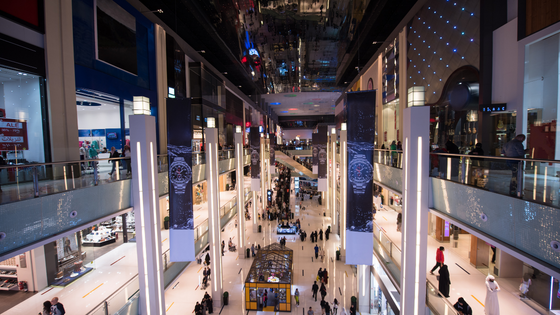It was a sweltering summer, and so was the energy news! Have you noticed that the topic ofenergy saving is currently at the heart of all conversations? Energy efficiency, new regulations, decrees or energy saving measures…No matter what type of media you visit, you can’t miss it.The time has come to reduce our energy consumption.Individuals, companies and local authorities are all being called upon to use less energy. But, in concrete terms, what is expected from companies?
Keep on reading to know more!
Energy Savings for Businesses
As you know, the year2022 has been a turning point for the energy sector: for several months now governments have been talking about a recurring term, energy efficiency. Many European countries have announced concrete actions for the coming months. And for a good reason, the stakes are high on a European scale. Since this winter’s energy crisis, reinforced by the war in Ukraine,concerns about energy prices and bills have been growing, creating a climate of uncertainty.
Moreover, for several years now, the European Commission has been pushing companies towards an energy transition and a reduction of their carbon impact by implementing regulations and roadmaps such as the famousEnergy Efficiency Directiveor theGreen Pact for Europe.Thus,companies have to rethink their energy modeland implement energy-saving measures to face the challenges of this climate and economic crisis.
Energy Efficiency for Enterprises
On a European scale, the Council of Europe has just adopted a regulation thatimposes a 15% reduction in gas demand.Of course, each country manages its supply and consumption differently, but the goal remains the same: reducing energy consumption.In the UK, on April 7th 2022, theBritish Energy Security Strategywas published by the government. In this sense, itincludes a proposal for an over 40% reduction in gas consumption by 2030.
In 2020, businesses accounted for18% of the UK’s total greenhouse gas emissions.According to theBusiness Insights and Conditions Survey(BICS), in 2021,38% of companies stated that they were taking at least one action to reduce their greenhouse gas emissions, while 24% stated that they intended to take action in the next 12 months.
Compared to many countries, the UK is a bit behind in terms of energy legislation, which justifies the low figure above… however, there are certain regulations covering companies in the Kingdom, we can think about such as (but not only):
- The compulsory inspection of air conditioning:all air conditioning systems with an actual rated capacity of more than 12 kW must be regularly assessed by an energy expert. This is toprevent the emission of Fluorinated greenhouse gases(F-gases), a powerful greenhouse gas with a terrible impact on the environment.
- The 2021 Ecodesign of Energy-related Products and Energy Information Regulation:must be understood and applied by companies operating in retail. It introduceseco-design and energy labelling obligationsfor certain energy-related products to ensure consistency between the UK and the EU.
- The Minimum Energy Efficiency Standard (MEES)became effective in England and Wales on 1 April 2018 in order to encourage property owners to improve the energy efficiency properties rated F or G. In this sense, theMinimum Energy Efficiency Standard Rating is E and above.
![能源管理在零售with Las Arenas [Case Study] | DEXMA](https://no-cache.hubspot.com/cta/default/437281/690abcd1-6933-41d6-ab18-432a2a60df24.png)
4Energy Efficiency Measures that should be adopted by the Retail Sector
Retail is a very special sector that requires a lot of energy. Whether we are talking about a supermarket or a clothing shop, any type of establishment that falls into this category has a common objective: meeting the need forcustomer comfort, in terms of lighting or room temperature. Sometimes achieving very good results does not require tremendous effort…For instance, lowering your shop’s indoor temperature…did you know that a1°C decrease in heating temperaturescan reduce your energy consumption by up to 8%? Still according to our PartnerOptimised, in a typical retail shop, around 73% of energy expenditure is related to heating, ventilation and air conditioning, hot water, and exterior and interior lighting.
If you work in retail, here are some tips you can apply today to reduce your energy costs andlower your carbon footprint:
1. Switch to LED lighting
Supported by government programmes to reduce carbon emissions in the UK, the LED sector has experienced significant growth in the last few years. Indeed, LED lighting isconsidered to be the longest-lasting lighting solution, as it offers better quality and performance in terms of energy efficiency.With an average60-watt bulb costing £78.36 per yearif left on 24h/day, 365 days a year, it’s easy to see how high retailers’ electricity bills can be. In addition, with a shift to LED lighting, you will be able to cut your energy consumption by up to 80%.
2. Opting for Renewable Energy and Photovoltaic Self-Consumption
A standard commercial solar panel installation will providefree electricity for over 25 years.安装太阳能电池板不仅可以给你一个ROI of up to 20% per year, but self-consumption will also protect you frompossible power cuts, especially during the coming winter. According to the same source, “a typical 250 kWp PV installation can compensate for about 64 tonnes of CO2, which is the equivalent of driving155,000 miles (≃250,000km) in a petrol car”.
Based on current market trends,Solar Energy has the potential to meet up to 20% of the EU’s Electricity demand by 2040.Against all odds and despite its grey weather, theUK is a good place to install solar panels! To illustrate, in 2021, solar energy contributed 28% of theUK’s total Renewable Energy generation, and this is just the beginning.
Finally, you can benefit from financial subsidies reserved for professionals. In the UK, in some cases, you might even be eligible forfree solar panels.Some of the main funding include:
- FIT Scheme
- Renewable heat incentive
- Enhanced Capital Allowances
- The Green Deal
- Salix Finance
- And more…
3. Adopt a proactive approach
In France, many retailers and companies in the distribution sector did not wait for the obligation to reduce their energy consumption to set an example. In fact, as soon as the government announced its energy efficiency plan, the directors of the largest food retailers decided to take action by quickly proposing their own collective energy efficiency plan, which will be effective from 15 October. Carrefour, Auchan, E.Leclerc, Franprix, Picard… Here are some of the companies that are aboutto commit themselves collectively to the application of energy efficiency measuressuch as
- Switching off lightswhen the shop is closed,
- Reducing light intensityat certain times of the day,
- Turning offair exchange at night,
- Staggeringthe production of ice.
Although there are no such measures in the UK (yet), it can still be interesting to take the helm andget inspired by our neighbours…
4. Focus on an Energy Management System (EMS)
This software will allow you to identify the areas and/or shops to prioritise when implementing energy-saving measures. In addition, it will provide you with an analysis of yourconsumption data in order to monitor and evaluate the effectiveness of your actions.Finally,an energy management platform such as Dexmacan help you detect consumption anomalies on your sites so that you can correct them immediately. We give you more detailsin this article dedicated to the use of technology to reduce energy costs in shops.
这些例子说服你了吗?如果你想to understand better how these measures can be applied to the retail sector, we invite you to download thisfree-to-download case study of Las Arenas.You will discover how this shopping centre has successfully monitored and automated the energy consumption of its more than 100 shops.
While energy management software is an ideal tool to help you identify energy-saving measures in your shops, it is also a great opportunity todisplay the effectiveness of your measures, especially through energy dashboards. Dashboards not only allow you to check the effectiveness of your energy-saving measures but also help you to gain support from your management team, employees or colleaguesthanks to their ease of use and sharing. Find out in this articlewhy you should use energy dashboards for your energy-saving plan.
如果你想more recommendations on what to do in your business, or if you would simply like a demonstration of the Dexma platform’s dashboards, please contact us!



